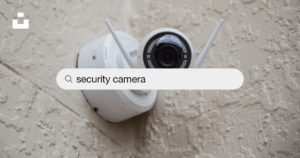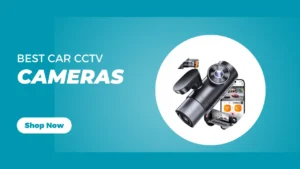In today’s world, where security is a paramount concern, Closed-Circuit Television (CCTV) systems have become an indispensable investment for homeowners and businesses alike. These sophisticated surveillance solutions not only provide a deterrent against criminal activities but also offer peace of mind by monitoring your premises around the clock.
» CCTV Cost Calculator.
However, as with any significant investment, understanding the associated costs is crucial to making an informed decision. This comprehensive guide aims to shed light on the various factors that influence CCTV installation costs in the UK, enabling you to plan effectively and ensure a seamless integration of these security measures into your property.
Evaluating Your Security Needs
Before delving into the intricacies of CCTV installation costs, it is essential to conduct a thorough assessment of your security requirements. The scale and complexity of your property, be it a residential dwelling, a commercial establishment, or an industrial facility, will play a pivotal role in determining the number of cameras required and the overall sophistication of the system.
For instance, a modest residential property may necessitate a basic setup with a few strategically placed cameras to monitor entry points and high-traffic areas. In contrast, a sprawling commercial complex or an industrial site may demand an extensive network of cameras, including specialized models like pan-tilt-zoom (PTZ) and thermal cameras, to ensure comprehensive surveillance and advanced analytics capabilities.
By conducting a thorough risk assessment and identifying your most critical security vulnerabilities, you can prioritize your needs and tailor the CCTV system accordingly. This initial step not only ensures that you invest in the appropriate components but also helps to avoid unnecessary expenditures, ultimately optimizing your investment.
Camera Types and Their Associated Costs
One of the most significant cost drivers in a CCTV installation is the type of cameras you choose. Each camera variant offers unique features and capabilities, catering to specific security requirements and environmental conditions. Let’s explore some of the most common camera types and their associated costs:
Dome Cameras
Dome cameras, known for their discreet and unobtrusive design, are well-suited for both indoor and outdoor surveillance. Depending on the brand, features, and resolution, these cameras typically range in price from £80 to £250. Dome cameras are an excellent choice for monitoring high-traffic areas, lobbies, and entryways, providing a wide field of view while blending seamlessly into the surroundings.
Bullet Cameras
Bullet cameras, named for their cylindrical shape, are designed primarily for outdoor use and offer high-quality footage, even in challenging lighting conditions. Prices for these cameras can vary from £70 to £300, with higher-end models boasting advanced features like night vision, weatherproofing, and vandal-resistant casing. Bullet cameras are ideal for monitoring perimeters, parking lots, and other outdoor areas where robust and reliable surveillance is essential.
Pan-Tilt-Zoom (PTZ) Cameras
PTZ cameras are the workhorses of advanced surveillance systems, offering the ability to pan, tilt, and zoom, making them ideal for monitoring large areas such as parking lots, stadiums, or industrial facilities. However, their advanced capabilities come at a premium, with prices ranging from £150 to £1,000 or more, depending on the brand, resolution, and additional features.
Thermal Cameras
Thermal cameras, which detect heat signatures rather than relying on visible light, are often employed in high-security settings or in environments with low-light conditions. Due to their sophisticated technology, these cameras can be significantly more expensive than standard night vision models, with prices ranging from £90 to £400 or higher. Thermal cameras are particularly useful for monitoring perimeters, detecting intruders, and enhancing overall security in sensitive areas.
Fisheye Cameras
Fisheye cameras, equipped with specialized lenses, provide a 180-degree panoramic view, making them well-suited for monitoring large areas with fewer cameras. Depending on the brand and features, prices for these cameras can range from £80 to £250 or more. Fisheye cameras are often used in retail environments, lobbies, and other open spaces where a comprehensive view is essential.
It’s important to note that while the camera itself is a significant cost factor, depending on the installation location and environmental conditions, additional expenses may arise from the need for specialized mounts, housings, or weatherproofing accessories.
Digital Video Recorders (DVRs) vs. Network Video Recorders (NVRs)
Once you’ve selected the appropriate cameras for your CCTV system, the next consideration is the recording system. Two main options are available: Digital Video Recorders (DVRs) and Network Video Recorders (NVRs). Understanding the differences between these two systems can help you make an informed decision based on your specific requirements and budget.
Digital Video Recorders (DVRs)
DVRs are traditional CCTV recording systems that capture footage from wired cameras. They are known for their security and reliability, as the data is stored locally on a hard drive or other storage media. Depending on the number of cameras, storage capacity, and additional features, DVRs can cost anywhere from £150 to £900 or more.
One of the advantages of DVRs is their simplicity and ease of installation, making them a cost-effective solution for smaller installations or environments where remote access is not a primary concern. However, it’s important to consider the potential limitations of DVRs, such as the need for dedicated cabling and the inability to easily integrate with IP-based systems or access footage remotely.
Network Video Recorders (NVRs)
NVRs, on the other hand, are designed to work with IP cameras and transmit data over a network. This allows for greater flexibility and remote access capabilities, as footage can be viewed and managed from any location with an internet connection. While NVRs offer advanced features and scalability, they can be more expensive than DVRs, with prices ranging from £200 to £1,000 or higher, depending on the system’s complexity and storage capacity.
NVRs are particularly well-suited for larger installations, multi-site operations, or environments where remote monitoring and centralized management are essential. They can also integrate with other IP-based systems, such as access control or building management systems, providing a comprehensive and unified security solution.
When choosing between a DVR and an NVR, it’s crucial to consider factors such as the size of your installation, the need for remote access, scalability requirements, and your overall budget.
Additionally, consulting with a professional CCTV installer can help you navigate the nuances of these recording systems and ensure that you select the option that best aligns with your security needs and long-term goals.
Installation Costs: Beyond Hardware and Equipment
While the cost of cameras and recording systems is a significant factor in determining the overall CCTV installation cost, several additional expenses should be taken into account. These costs can vary significantly depending on the complexity of the installation, the location, and the specific requirements of your property.
Camera Placement and Wiring
The location of each camera plays a crucial role in determining the installation costs. Cameras installed at heights or in hard-to-reach areas may require specialized equipment or additional labor, thereby increasing the overall cost. Similarly, the wiring and cabling requirements can also contribute significantly to the installation expenses, particularly in larger installations or environments where extensive cabling is necessary.
In some cases, wireless CCTV systems may be a more cost-effective solution, particularly in situations where wiring and cabling would be challenging or expensive. However, it’s important to consider the potential limitations of wireless systems, such as potential interference or signal strength issues, before making a decision.
Professional Installation Services
While it may be tempting to attempt a DIY CCTV installation to save costs, it’s generally recommended to enlist the services of a professional installer. Experienced professionals not only ensure proper installation and optimal system performance but also provide valuable expertise in areas such as camera placement, system configuration, and integration with existing security or building management systems.
Professional installation services can range from £75 to £90 per camera on average, with the total cost varying depending on the number of cameras, the complexity of the installation, and any additional services required. While this may seem like an added expense, the peace of mind and long-term reliability provided by professional installation can ultimately save you money by minimizing the risk of system outages, costly repairs, or the need for frequent maintenance.
Integration with Existing Systems
In some cases, you may need to integrate your CCTV system with existing security or building management systems. This integration process can add to the overall cost, as it may require specialized expertise and additional hardware or software components. However, a seamlessly integrated system can provide significant benefits, such as centralized monitoring, enhanced automation, and improved operational efficiency.
Monitoring Services and Maintenance Contracts
Depending on your specific requirements, you may opt for a monitored CCTV system, where a third-party service provider constantly monitors your footage for potential threats or criminal activity. In such cases, you’ll need to account for ongoing monthly or annual fees, which can range from £30 to £40 per month or more, depending on the level of service and the provider.
Additionally, to ensure the longevity and optimal performance of your CCTV system, regular maintenance and repairs may be necessary. Many professional installers offer maintenance contracts, which can be paid monthly or annually, to cover these costs. While the exact pricing will vary based on the complexity of your system and the services included, budgeting for ongoing maintenance can help you avoid unexpected expenses and ensure that your investment remains fully operational and up-to-date.
Comprehensive Cost Breakdowns: Residential, Commercial, and Industrial Installations
To provide you with a better understanding of the potential costs involved, let’s explore a comprehensive breakdown of CCTV system expenses across various scenarios:
Residential CCTV System
For a basic residential CCTV system consisting of four wired cameras and a DVR, you can expect to pay anywhere from £800 to £1,200, including installation costs. This estimate assumes the use of standard bullet or dome cameras, with a straightforward installation process and minimal wiring requirements.
However, if you opt for a more advanced system with wireless cameras, remote access capabilities, or additional features like night vision or motion detection, the cost can increase significantly, potentially reaching £1,500 to £2,500 or more, depending on the specific components and installation complexity.
Small Commercial CCTV System
A small commercial establishment, such as a retail store or office, may require a more robust system with eight to ten cameras, both indoor and outdoor. The cost for such a system, including installation, can range from £1,500 to £3,000 or more, depending on the camera types, recording system, and additional features like remote monitoring or integration with existing security systems.
In this scenario, it’s common to incorporate a mix of camera types, such as dome cameras for indoor areas and bullet or PTZ cameras for outdoor surveillance. Additionally, an NVR may be preferred over a DVR to facilitate remote access and centralized management, further increasing the overall cost.
Large Commercial or Industrial CCTV System
For larger commercial or industrial facilities, the cost of a comprehensive CCTV system can escalate significantly. A system with 20 or more cameras, including PTZ, thermal, and advanced analytics capabilities, can cost anywhere from £10,000 to £50,000 or more, depending on the size and complexity of the installation.
In these scenarios, specialized cameras, such as thermal or fisheye models, are often necessary to ensure comprehensive coverage and advanced surveillance capabilities.
Additionally, integrating with existing security systems, building management systems, or remote monitoring services can further contribute to the overall cost.
It’s important to note that these cost estimates are approximate and can vary based on your specific requirements, location, and the chosen installer. Additionally, factors such as the need for specialized mounts, weatherproofing, or extended cabling can further impact the final cost.
Cost-Effective Strategies for CCTV Solutions
While investing in a CCTV system can be a significant expense, there are several strategies you can employ to maximize the value of your investment and ensure cost-effectiveness:
Prioritize Your Security Needs
Conduct a thorough risk assessment to identify your most critical security requirements, and focus your CCTV system on addressing those areas first. By prioritizing your needs, you can avoid unnecessary expenditures on features or components that may not be essential for your specific situation.
Consider Scalability
Choose a CCTV system that allows for future expansion, enabling you to add additional cameras or features as your needs evolve without the need for a complete system overhaul. This scalability not only ensures that your investment remains relevant but also helps to spread out the costs over time, making it more manageable for your budget.
Explore Wireless Options
In some cases, wireless CCTV systems can be a more cost-effective solution, particularly in situations where wiring and cabling would be challenging or expensive. While wireless systems may have a higher upfront cost per camera, they can significantly reduce installation costs and provide greater flexibility in terms of camera placement.
Negotiate with Installers
Obtain multiple quotes from reputable CCTV installers and negotiate for the best possible pricing, taking into account not only the initial installation costs but also ongoing maintenance and support. By fostering a competitive environment, you can leverage the market to secure more favorable terms and potentially unlock additional cost-saving opportunities.
Leverage Technology Advancements
As CCTV technology continues to evolve, newer and more cost-effective solutions may become available. Stay informed about the latest developments and consider upgrading or replacing outdated systems to take advantage of improved features, enhanced performance, and potentially lower costs.
Additionally, explore opportunities to integrate your CCTV system with other smart home or building automation technologies, which can provide additional value and cost savings in the long run.
Choosing the Right CCTV Installer: A Critical Decision
While understanding the costs associated with CCTV installation is crucial, selecting the right installer is equally important. A reputable and experienced CCTV installer can not only ensure a seamless installation process but also provide valuable guidance and recommendations tailored to your specific needs and budget.
When evaluating potential installers, consider factors such as their experience, certifications, customer reviews, and the range of services they offer. A professional installer should be able to conduct a comprehensive site assessment, recommend the most appropriate system components, and provide detailed cost estimates that account for all aspects of the installation, including any potential challenges or additional requirements.
Additionally, inquire about the installer’s after-sales support and maintenance services, as well as any warranties or guarantees they offer on their workmanship and the equipment installed. A reliable installer should be committed to ensuring the long-term performance and reliability of your CCTV system, providing peace of mind and protecting your investment.
Nighthawk CCTV: Your Trusted Partner for Comprehensive Security Solutions
At Nighthawk CCTV, we understand the importance of tailored security solutions that meet your unique needs while remaining cost-effective. As a leading provider of CCTV installation, locksmith services, and maintenance and repair services in the UK, we are committed to delivering exceptional service and ensuring your complete satisfaction.
Our team of highly skilled and experienced professionals will work closely with you to assess your security requirements, recommend the most appropriate CCTV system components, and provide transparent and competitive pricing. We pride ourselves on our attention to detail and our commitment to ensuring that every installation is executed flawlessly, minimizing disruptions and maximizing the value of your investment.
With a proven track record of success and a dedication to customer satisfaction, Nighthawk CCTV is the ideal partner for all your CCTV installation and security needs. Contact us today to schedule a consultation and take the first step towards enhancing the safety and security of your property.
Conclusion
Investing in a CCTV system is a significant decision that requires careful consideration of various factors, including your security needs, the type of cameras and recording systems required, installation complexity, and ongoing maintenance and monitoring services. By understanding the various cost components and employing cost-effective strategies, you can ensure that your investment in a CCTV system provides optimal value while effectively safeguarding your property and loved ones.
Remember, while the initial investment in a CCTV system may seem substantial, the peace of mind and enhanced security it provides can be invaluable, particularly for businesses and homeowners seeking to protect their assets and maintain a safe environment.
By partnering with reputable CCTV installers like Nighthawk CCTV and leveraging industry expertise, you can navigate the complexities of CCTV installation costs and make an informed decision that aligns with your security goals and budget constraints.




